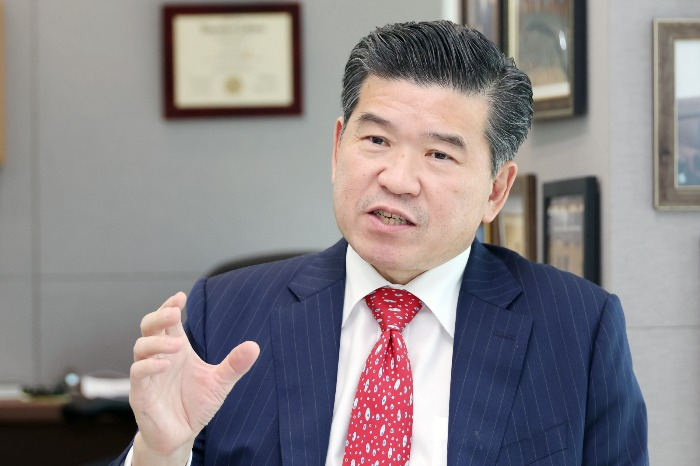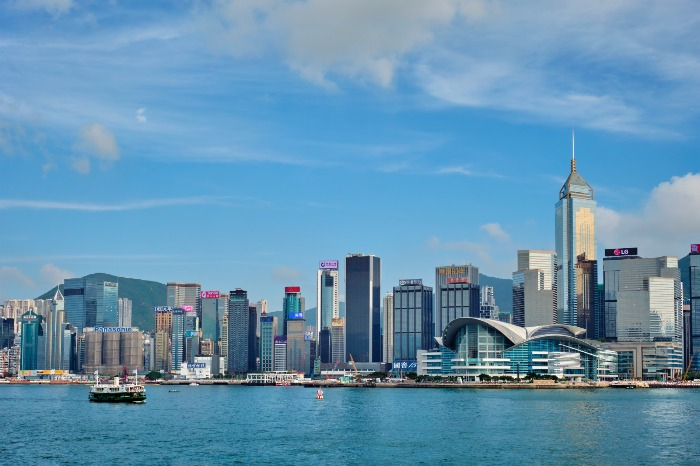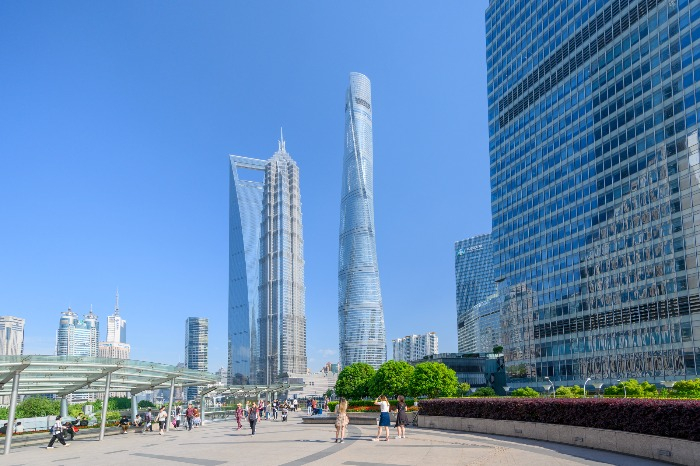Business & Politics
China exodus to elevate Korea to Asia hub: AmCham chief
Regulatory predictability, tax cuts and labor market flexibility will boost Korea’s appeal as companies' Asian headquarters choice
By Mar 19, 2024 (Gmt+09:00)
3
Min read
Most Read
LG Chem to sell water filter business to Glenwood PE for $692 million


Kyobo Life poised to buy Japan’s SBI Group-owned savings bank


KT&G eyes overseas M&A after rejecting activist fund's offer


StockX in merger talks with Naver’s online reseller Kream


Mirae Asset to be named Korea Post’s core real estate fund operator



South Korea has outstripped Hong Kong and Shanghai as a preferred Asia-Pacific headquarters destination for global companies, trailing only Singapore, as geopolitical concerns and economic uncertainties in China are prompting multinationals to explore alternative regional bases, a survey by the American Chamber of Commerce in Korea, or AMCHAM Korea, showed.
According to the AMCHAM Business Survey 2024 released this month, Korea climbed to second place from fourth as a choice as global companies’ Asia hub.
“Korea should not miss out on this crucial opportunity where multiple global companies are leaving China,” said James Kim, chairman of the American Chamber of Commerce in Korea (AmCham Korea).
Kim said Korea is an attractive place for expatriates thanks to its lower cost of living than Singapore, the global K-Wave phenomenon and the high standard of education. In that regard, Korea could overtake the Southeast Asian country as the favored Asian headquarters spot for foreign companies.
“If (the South Korean government) relaxes excessive regulatory hurdles for foreign companies, AmCham will encourage global companies to establish their Asia-Pacific headquarters in Korea,” he told The Korea Economic Daily in an interview on Monday.
The lobby group for US companies operating in Korea is receiving a slew of inquiries from companies looking to move their Asian headquarters to Korea.

Thanks to Korea’s robust IT infrastructure, geographic proximity to sizeable consumer markets, well-established supply chain infrastructure and shifts in international tax regulations, Korea is emerging as an optimal destination for multinational companies’ Asia-Pacific regional headquarters, AmCham Korea said in a report titled “Korea as an Asia-Pacific Regional Headquarters.”
The tax regulations mentioned in the report are referring to the BEPS Pillar Two under the OECD, where 140 countries agreed to adopt a global minimum effective tax rate via a system applying to multinational groups with a certain level of revenue.
In the publication, AmCham outlined its proposals to make Korea an appealing destination for global companies. It is its first report since its inception in 1953 to advise the Korean government on policies related to foreign companies.
LABOR FLEXIBILITY
In the survey, 43.7% of respondents rated South Korea’s business environment as average, while 31% rated it positively. Regarding their business outlook in South Korea within the next two years, 66.2% of respondents expressed optimism or neutrality.
However, AmCham pointed out labor market inflexibility, harsh punishment for CEOs for workplace bullying and accidents and unpredictable regulations such as irregular tax audits as key barriers for foreign companies to move their Asian operations to Korea.
“Predictability is the most important factor for global companies,” Kim said.

AmCham advised that Korea needs to take a flexible approach to hiring and firing practices, as well as work hours, particularly modifying the current 52-hour workweek cap to a monthly or annual-basis cap.
CEO RISKS AND LIABILITY
It also recommended the government mitigate the risk of criminal liability for CEOs to ensure such liabilities are invoked only in cases where the CEO is knowingly involved in criminal activities.
Under the Serious Accident Punishment Act, in place since 2022, business owners or heads of companies in Korea face penalties or jail terms in the event of serious industrial accidents at their workplaces.
It also suggests Korea reduce corporate tax on foreign companies, which can go as high as 24% -- well above Singapore’s 17% cap and Hong Kong’s 16.5%.
WINDOW OF OPPORTUNITY
In Asia, Seoul is the fifth most expensive city for expatriates after Hong Kong, Singapore, Shanghai and Beijing. In terms of quality of living, South Korea’s capital city also ranks fifth, according the Mercer’s 2023 Cost of Living Survey.
In a recent survey conducted by Ernst & Young, nearly 30% of company executives indicated that they were actively contemplating changes to their Asia headquarters location or operations.
“Korea should seize the initiative now to attract APAC RHQs before this window of opportunity closes,” AmCham Korea noted in the report.
APAC RHQ is short for Asia-Pacific regional headquarters.
Write to Woo-Sub Kim, Hyung-Kyu Kim and Sang-Hoon Sung at duter@hankyung.com
Yeonhee Kim edited this article.
More to Read
-
 Korea business lobby group eyes tax reform in new parliament
Korea business lobby group eyes tax reform in new parliamentMar 18, 2024 (Gmt+09:00)
3 Min read -
 The KED ViewLabor reform urged in Korea with higher wages than Japan
The KED ViewLabor reform urged in Korea with higher wages than JapanMar 18, 2024 (Gmt+09:00)
2 Min read -
 RegulationsS.Korea should cut inheritance, gift taxes to OECD levels: SME lobby chief
RegulationsS.Korea should cut inheritance, gift taxes to OECD levels: SME lobby chiefJan 23, 2024 (Gmt+09:00)
4 Min read -
 EconomyS.Korea’s labor gains slow in November with fewer jobs for young people
EconomyS.Korea’s labor gains slow in November with fewer jobs for young peopleDec 13, 2023 (Gmt+09:00)
3 Min read -
 EconomyShrinking youth jobs cast shadow over S.Korea’s labor market
EconomyShrinking youth jobs cast shadow over S.Korea’s labor marketJul 12, 2023 (Gmt+09:00)
2 Min read -

Comment 0
LOG IN


